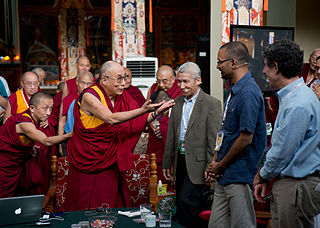A Quote by Galileo Galilei
By denying scientific principles, one may maintain any paradox.
Quote Topics
Related Quotes
The slaving Poor are incapable of any Principles: Gentlemen may be converted to true Principles, by Time and Experience. The middling Rank of Men have Curiosity and Knowledge enough to form Principles, but not enough to form true ones, or correct any Prejudices that they may have imbib'd: And 'tis among the middling Rank, that Tory Principles do at present prevail most in England.
No government has the right to decide on the truth of scientific principles, nor to prescribe in any way the character of the questions investigated. Neither may a government determine the aesthetic value of artistic creations, nor limit the forms of literacy or artistic expression. Nor should it pronounce on the validity of economic, historic, religious, or philosophical doctrines. Instead it has a duty to its citizens to maintain the freedom, to let those citizens contribute to the further adventure and the development of the human race.
The facts of the fossil record never justified denying poor people a healthy diet. The facts of the weather record do not justify denying poor people affordable energy. And no set of facts, whatever they may be, can justify denying scientists - or anyone else, for that matter - the right to free speech.
I have said there are three principles that should be followed. One, we should maintain the "one China" policy that every American president has articulated, including President Reagan. Secondly, we should make clear that we want a peaceful resolution. And three, Taiwan should not challenge that arrangement in a way that will provoke a conflict. Those are three perfectly clear principles. I haven't used any of the other slogans.
Secession belongs to a different class of remedies. It is to be justified upon the basis that the States are Sovereign. There was a time when none denied it. I hope the time may come again, when a better comprehension of the theory of our Government, and the inalienable rights of the people of the States, will prevent any one from denying that each State is a Sovereign, and thus may reclaim the grants which it has made to any agent whomsoever.
Outside of the marriage context, can you think of any other rational basis, reason, for a state using sexual orientation as a factor in denying homosexuals benefits or imposing burdens on them? Is there any other rational decision-making that the government could make? Denying them a job, not granting them benefits of some sort, any other decision?





































